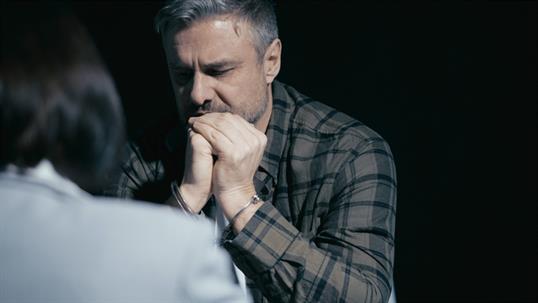Probation Revocation and What It Means
Life on probation can feel like walking a tightrope. You’ve served your time and want to move forward, but the rules that come with probation can be strict and sometimes unforgiving. Missing an appointment, falling behind on requirements, or being accused of a new offense can quickly place everything you’ve worked for at risk.
Probation Revocation Overview
A probation revocation happens when someone on probation is accused of breaking the terms set by the court. These violations can include failing to check in with your probation officer, skipping required programs, or even getting accused of a new crime. If this happens, the court reviews the situation to determine if probation will continue, change, or end completely.
If probation is revoked, you could be looking at jail time or other significant penalties. The effects don’t stop with you alone; they can ripple out to your family, your job, and your future plans. Understanding how the process works and what’s at stake is a crucial step in protecting your rights and freedom.
Legal Implications
If you’re facing a probation revocation hearing, knowing what to expect is important. These hearings are different from standard criminal trials. The rules are less strict, and the prosecution doesn’t need to prove violations beyond a reasonable doubt. Instead, they base their case on the "preponderance of the evidence," which means that something is more likely than not to have occurred.
Even so, you have rights. You can present evidence, bring witnesses to testify on your behalf, and challenge the claims against you. During the hearing, the judge considers not only whether a violation occurred but also your behavior while on probation. Were you trying to comply with the rules? Have you been making an effort to rehabilitate? Every detail can play a part in the outcome.
If a violation is confirmed, the consequences vary. The court may extend probation, add stricter terms, or fully revoke it and impose jail time. This makes your defense strategy incredibly important, as the results could dramatically affect your future.
The Role of the Judge
Judges wield significant power in these hearings and can decide what happens to someone accused of a probation violation. They evaluate several factors, such as the severity of the alleged violation and whether there are any extenuating circumstances. For example, a missed appointment might be treated differently than a new criminal charge.
The judge also considers whether the individual is working to change their life for the better. Things like holding down a job, attending counseling, or staying active in the community can influence their decision. Given how much is up to the judge’s discretion, having strong legal representation to build your case and present it effectively is critical.
Why a Lawyer Matters During Probation Revocation
The Benefits of Legal Representation
Facing a probation revocation is overwhelming, but having a knowledgeable lawyer on your side can make all the difference. A good attorney helps you understand the process, protects your rights, and works to minimize the consequences of any potential violations.
Your lawyer can argue for alternative solutions, such as modifying probation terms instead of ending them. They can also challenge the evidence against you and ensure the court hears your side of the story. For example, they might highlight your efforts to rehabilitate, demonstrate how you’ve met other probation requirements, or point out errors that may have affected your case.
Building a Defense
Defending against probation violations takes preparation. An experienced attorney will gather evidence, such as records showing compliance with probation terms, or testimonies from employers, counselors, or others who can vouch for you. They’ll also review the details of your alleged violation to pinpoint any weaknesses in the case against you.
For example, if the allegation involves a failed drug test, your lawyer might question the testing process or the validity of the results. By digging into these specifics, they aim to cast doubt on the claims and advocate for an outcome that lets you move forward with your life.
Negotiating with the Court
Sometimes, negotiation is the best route forward. A skilled attorney might propose alternatives to revoking your probation, such as additional counseling, community service, or other constructive measures that demonstrate your commitment to improving.
Judges often respond to solutions that balance accountability with a chance for rehabilitation. If incarceration can be avoided, these alternatives may help you stay on track without upending your life.
Strategies for Moving Forward
Challenging Allegations
When the prosecution claims you’ve violated probation, there’s room to challenge those claims. Your defense can highlight inconsistencies or raise doubts about the evidence presented. For example, if the violation involves missed check-ins, your lawyer might provide proof of communication attempts that weren’t documented by the probation office.
The goal is to ensure the court sees all sides of the story, not just the allegations made against you.
Highlighting Positive Actions
Judges don’t just look at the violation itself. They also consider your efforts to comply and improve your life. Evidence of steady work, participating in treatment programs, or fulfilling other probationary requirements can speak volumes. It shows the court that, despite any setbacks, you’re striving to change for the better.
Take Control of Your Situation
Probation revocation can feel like the end of the road, but you don’t have to face it alone. At Meade Law Group, our attorneys can help you through every step of this challenging process. With careful strategy and personalized representation, we’ll work with you to aim for the best possible outcome.
Call (423) 464-7779 today to discuss your case. Every moment matters when your freedom is on the line.

